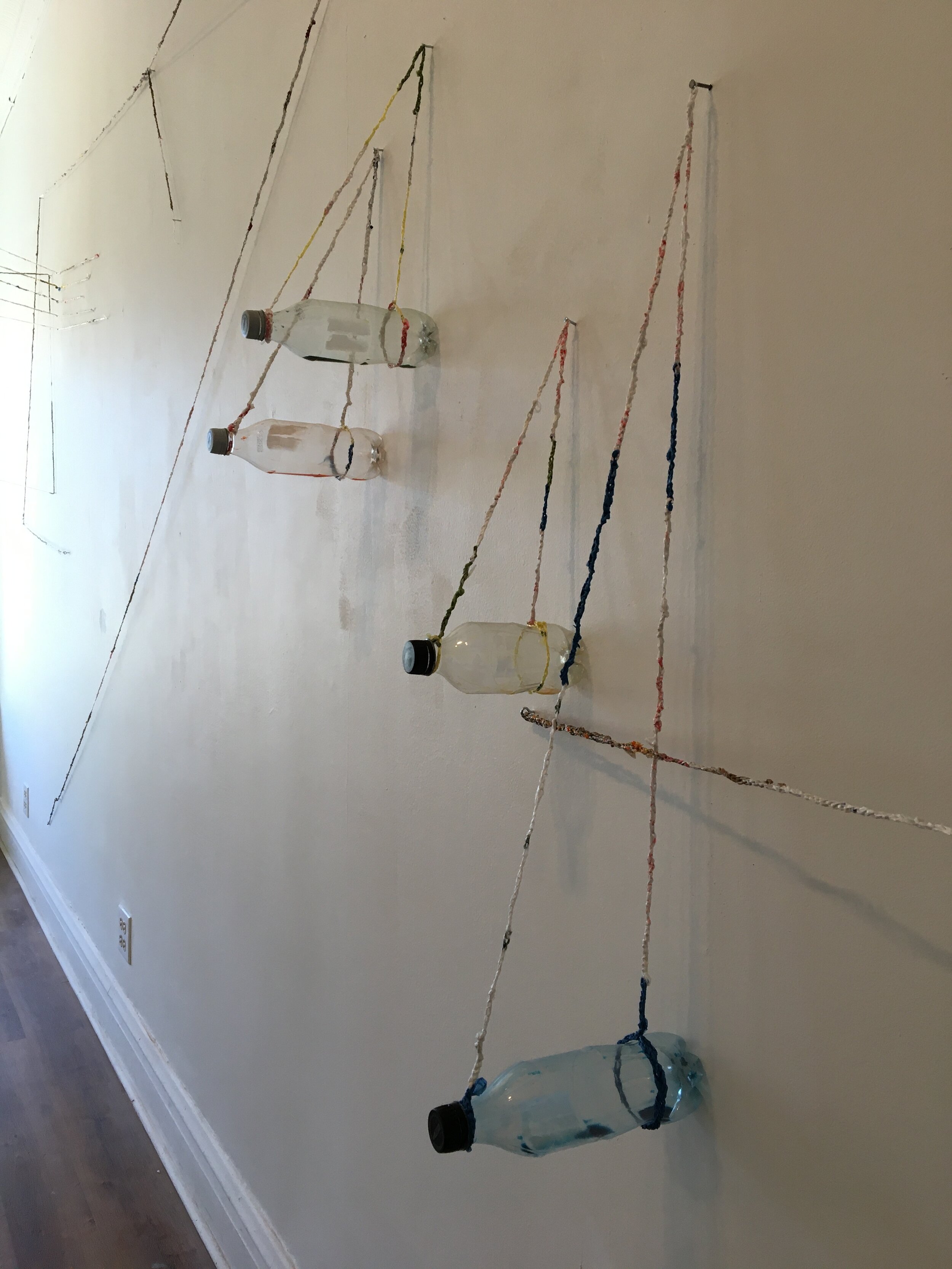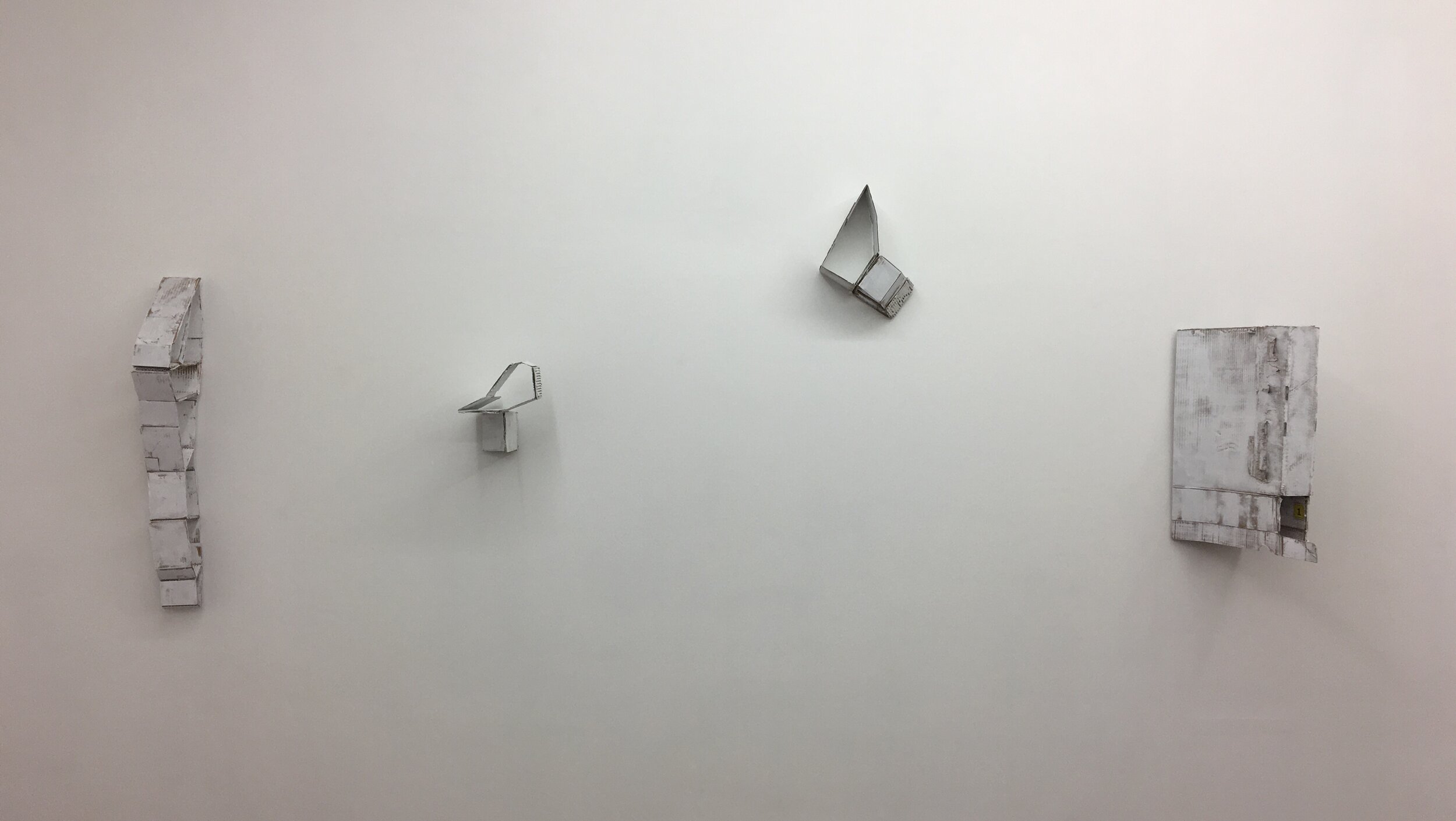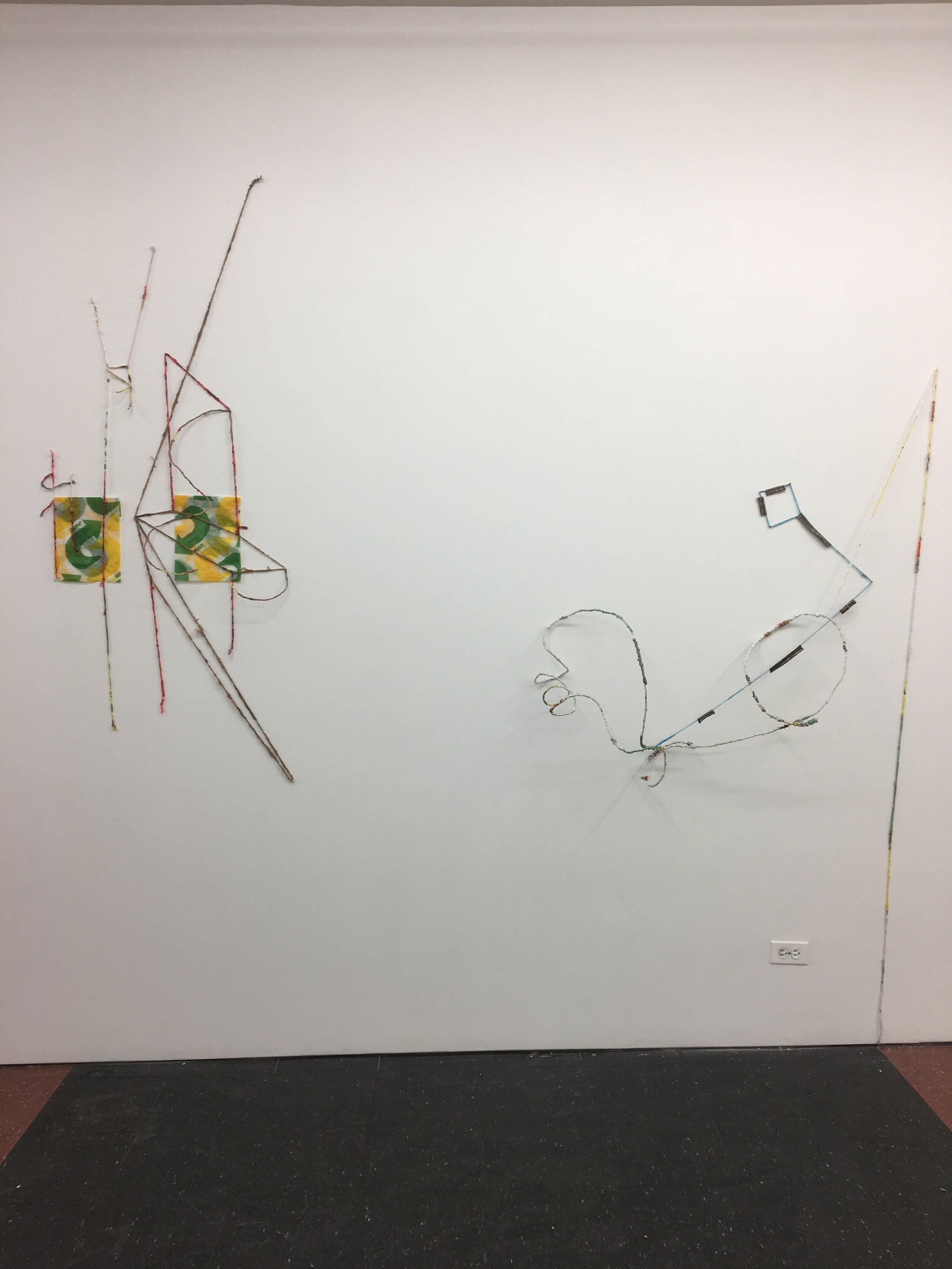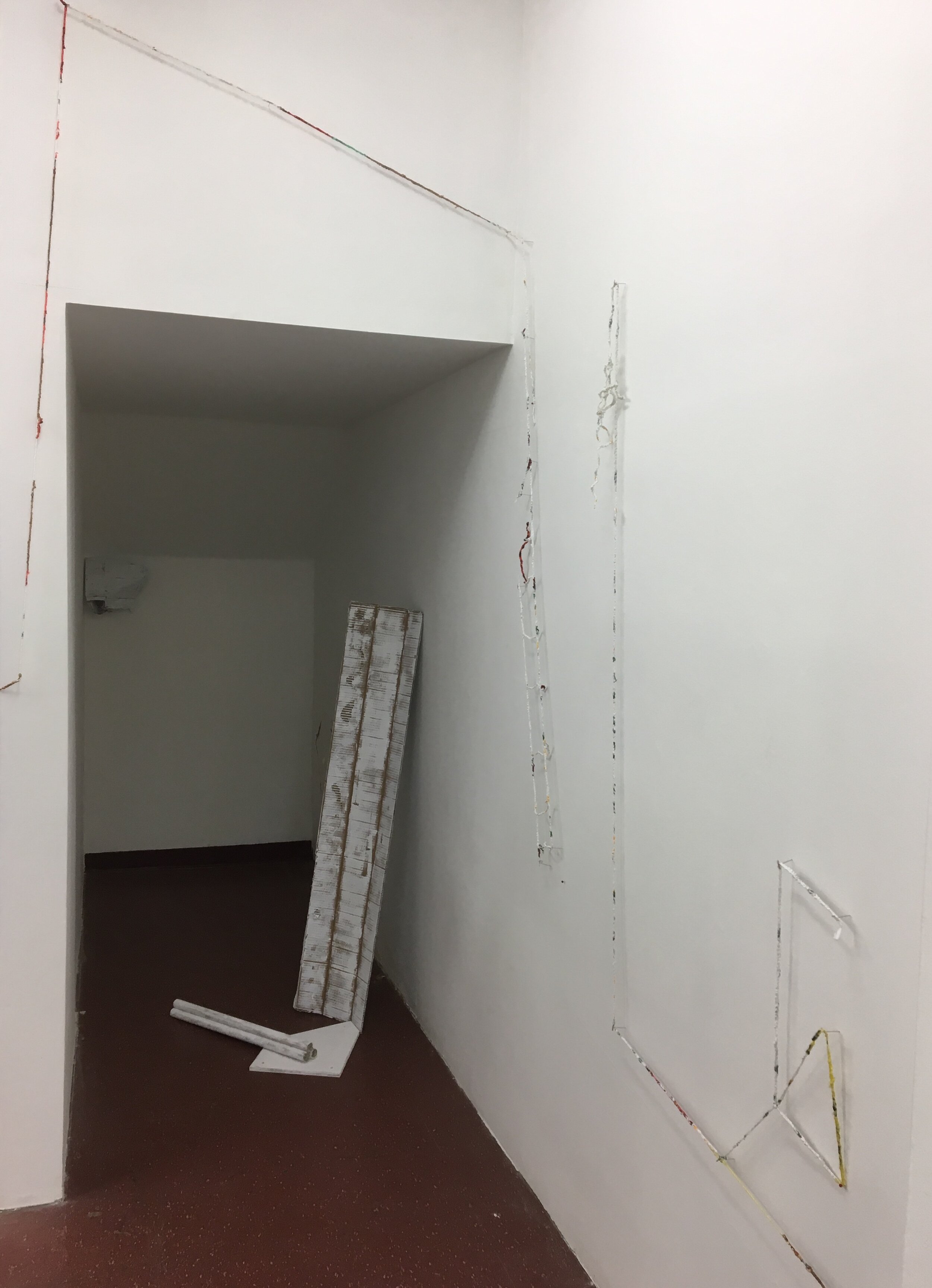2020 Projects
Process and Material - Woman Made Gallery
Curatorial Statement
Oftentimes, artists pursue their unparalleled originality and one of a kind making process through their own inventive and unique adaptations of traditional techniques. The processes reflect the artists’ insights and experiences in creation, and it becomes a work of art itself.
Other times, everyday objects and raw elements can challenge many makers to push the boundaries of the common perception and expectation of the material. It is also through the artists’ eyes that we see the hidden potential of the material.
Participating Artists
Danielle Andress
Heather Baker
Cathie Bleck
Collette Broeders
Barb Cone
Melissa Jay Craig
Sherri Denault
Emily Elhoffer
Raquel Esquives
Carlynn Forst
Tanya Gill
Karen Gubitz
Yvette Kaiser Smith
Millicent Kennedy
Amelia Key
Lialia Kuchma
Jill Lanza
Camila Linaweaver
Tai Lipan
Jennifer Mannebach
Iz Mozer
Jodi Patterson
Cory Peeke
Kelly Pelka
CV Peterson
Gina Lee Robbins
Janice Roberts
Heather Schulte
Pamela Shipley
Corrin Smithson McWhirter
Harin Song
Kristen Tordella-Williams
Julie Weber
Holly Wong
Donna Zarbin-Byrne


Drawing Lines of Poetry
Curatorial Statement
“Poems, like pictures, are of different sorts, some better at a distance, others near, some love the dark, some choose the clearest light. And boldly challenge the most piecing eye, some please for once, some will forever please.” Horace, Ars Poetica
Deirdre Fox has been working closely with scavenged materials, found objects, and regenerated patterns to create site-responsive installations.
Fox’s receptive and fluid approach to materials and space is like a form of visual poetry.
“I turn trash into visual poems, making work that appears disposable, but is not, opens up for discussion the contemporary paradigm of building in obsolescence. My drawing materials are disposable plastic bags, bottles, fabric scraps, and other detritus. I fold, crochet, knit, weave, collapse, inflate, stretch, and assemble these materials to be points, lines, and volumes held together by the site and light in which they are situated. I accommodate and countermand the language of the material and its physical volume.”
The dimensional rendering formed with compressed lines and dynamic tension equally challenges and stimulates the audience’s “viewing experience”, for its transferable quality defines what can be expected and unexpected, seen and unseen, and resisted and given in.
“Working with scale, I chase the perception that occurs in shifting focus between what falls just barely within one’s perceptual vision to what occupies central focus, relaying as gesture what is a thinner than expected demarcation between permanence and transience.”
I have been following Deirdre Fox’s work for several years and finally had the opportunity to curate a two-person exhibition with her work in the summer of 2019. During the installation, watching her maneuver the reconditioned and modified articles in a given space prompted me to ask the question, “How do I follow the lines or movements? Am I seeing or reading a created scene?”. Obviously, there isn’t a specific way of viewing. The installation started with the artist’s own experience on-site, and what a viewer perceives would be a derivation from indirect experience.
Without the distinctive appearance of text in her work, experiencing Fox’s visual poem is similar to, yet slightly different from calligrams - poems in which words are arranged to create visual images (i.e. Guillaume Apollinaire’s Revolver). Instead, viewers may engage with the installation environment as if they are reading or reciting a poem. By following composite elements (objects, colors, or shapes) on each structured line while taking moments here and there to revisit the previous impressions and attend to the recurring movements, it is viable for viewers to establish relationships not only with the forming constituents but also with cumulative experience. The dynamic and energy formed in the space are a result of an assemblage of materials reflecting the various degrees of the interconnectivity of time and space.
The exhibition presents a visual dialog created with the interrelated tension and the adaptability of chosen materials, and it also offers an environment for the viewers to mull over the transformative qualities of lines, shapes, purposes of the process, and varied perception.
Participating Artist
Dierdre Fox
2019 Projects
Spatial Rendering - Adds Donna
Curatorial Statement
Both Fox and Carow work closely with scavenged materials while engaging with space. From the moment of laying their eyes on the raw materials to installing the meticulously treated and resurfaced articles, these artists’ receptive and fluid approach to material and space is often connected in visual poetry.
The exhibition suggests a spatial dialogue created with the interrelated tension and the adaptability of chosen materials, and it also offers a space for the viewers to mull over the transformative qualities of lines, structures, and purposes of the process.
Participating Artists
Deirdre Fox
Marian Carow
Media


2018 Projects
Pages
Curatorial Statement
A page is a space where an artist’s seminal idea lands. Whether it’s in a sketchbook, a back of a napkin, or a receipt found in a pocket it is the incubation space where the artist’s vision germinates. It is here where unedited thoughts are documented, developed, crossed out, or preserved. Through the passage of time, the page nourishes, develops, and compiles the creative process like tiny clues towards the fullness of the artistic vision. ‘Pages’ features the structural property and processes of the creative space and the serial qualities through a variety of media techniques and possibilities.
Pamela Paulsrud’s artist book, “Tree Book” fits into the first category. She reassembled the same materials used to make the sheets of paper: tree bark and branch. Even with blank pages, the book successfully delivers the imaginative landscape and unspoken stories in it.
Allison Svoboda’s nature-inspired “Mandala” series investigates nature’s connection to the theory of fractal geometry. Her work, with its articulated layered structures and process-oriented nature, definitely collide with meditative energy.
Often a page is where an artist’s creation is documented. Rebecca Wolfram made the process her daily ritual and kept it for some years. Her stack of pages suggests her daily drawing commitments serve as not only records of her personal routines, but also the compilation of absorption of the surroundings which has added value of time.
Yvette Kaiser Smith’s pages are filled with codes of her own based on her recreation of mathematical sequences. The iteration of markings results in complete abstract form and hopefully provides a soothing and meditative experience to the viewers.
Inspired by the human genome code, Jennifer Mannebach’s collages revisit and map the traces of brain processes. Her color-codified renderings reveal the machinations of the creative process that evolve and materialize on visual surfaces.
A blank page promises enormous creative potential or immense pressure and fear. The “Tied” series was completed after I escaped several years of creator’s block. The hundreds of pages linked together reflect the time and ink spent on individual folds.
Participating Artists
Pam Paulsrud
Rebecca Wolfram
Yvette Kaiser Smith
Allison Svoboda
Jennifer Mannebach


